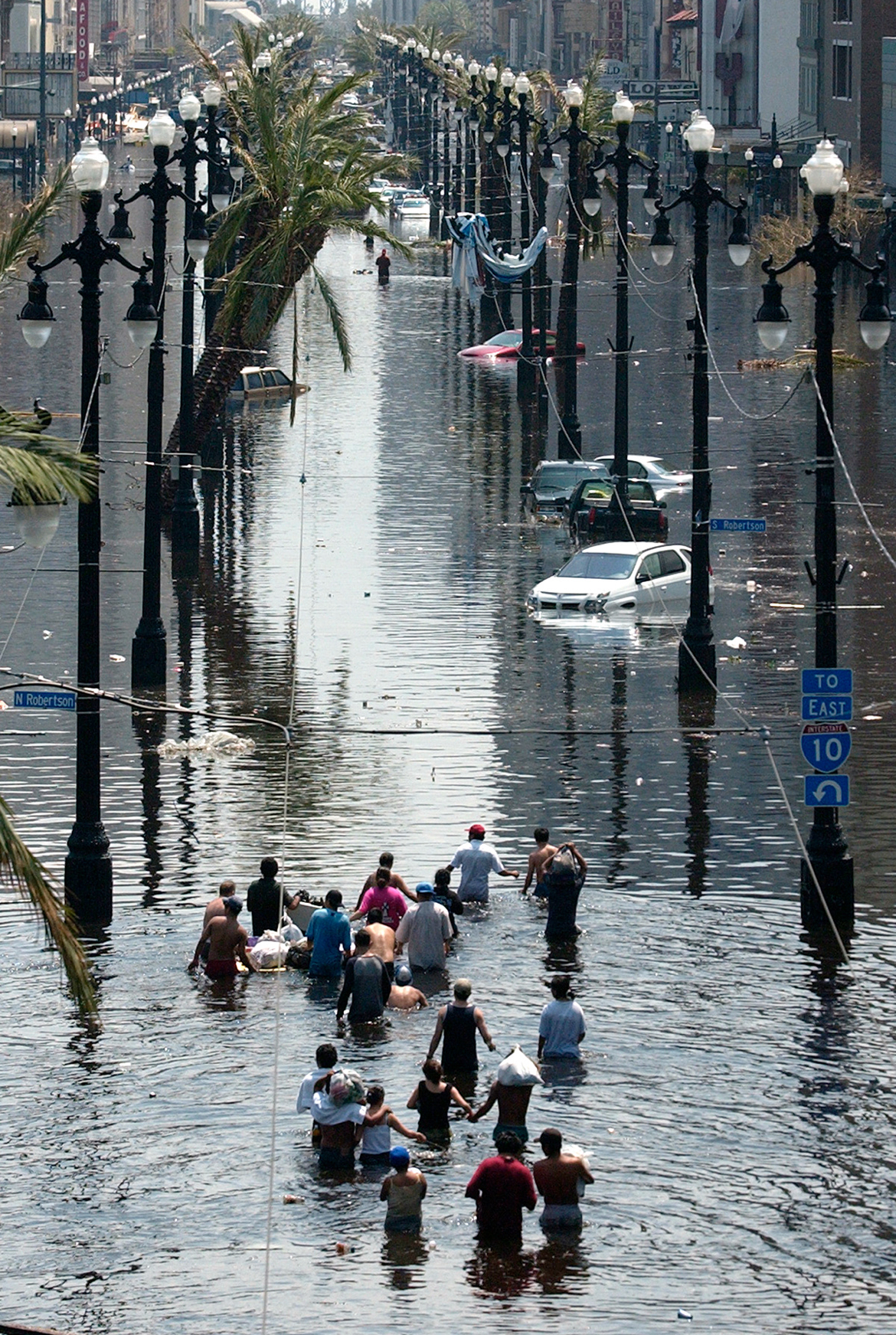In late August 2005, Manuel Torres got a big promotion from staff writer to bureau chief of a Times-Picayune office just outside New Orleans. He had worked his way up and was ready to lead and mentor other reporters.
However, just one week later Torres would find himself back working as a reporter, covering the biggest assignment of his life — Hurricane Katrina.
The storm would overtake not just New Orleans, but also St. Bernard Parish, the suburban jurisdiction where Torres was to shepherd news coverage in his new role. Located just beyond the Lower Ninth Ward, St. Bernard would be among the hardest hit areas in the metropolitan area.
Torres and his wife had just bought a house in the area but had not yet moved in when Hurricane Katrina struck. The house took in 14 feet of water — three and a half feet of which were on the second floor. But Torres remained focused, resilient and dedicated to his duty in the face of disaster.
“Covering a story as extensive as this was an experience,” he said. “We all learned the strength of our own character, the resilience we had, and I’m always going to be proud of it.”
Just a week before the storm hit, Torres was transitioning into his new job. He and his coworkers kept an eye on weather forecasts about a terrible storm heading for the Gulf. At the time, Hurricane Katrina was forecast to hit Florida, but by Saturday, Aug. 27, 2005, things changed, Torres said.
Torres’ wife, Kem Opperman-Torres, had just put their 2-year-old to bed and sat down in her recliner to tend to their 6-month-old and watch the news. She turned on the television and said she had an “oh-my-God moment.”
Opperman-Torres quickly called her husband, who confirmed the report about the storm’s path and advised her to evacuate with their two sons.
“We realized this was going to be the kind of disaster this region hadn’t seen in a generation,” Torres said.
Early Sunday morning, Torres’ wife and children evacuated to Baton Rouge while he went to the newsroom and rode out the storm with colleagues.
Hurricane Katrina made landfall before daylight on Aug. 29, 2005.
At the start of the storm, Torres wrote blog posts updating readers about the weather until it was safe for him to go out. The afternoon after the storm, Torres was part of small teams of reporters who traveled by newspaper delivery trucks to report on the storm’s aftermath.
He saw downed trees and broken windows; some areas were starting to flood. But when Torres made it to the 9th Ward, there was destruction like he had never seen before. He noticed residents being evacuated in boats. He got to work, interviewing people and hearing stories of their harrowing escapes from flooded homes.
Torres reported that first day without cell phone service or a computer. The next day, Torres and most of his colleagues and their family members who had stayed in the newsroom were evacuated to Baton Rouge.
Torres helped set up a makeshift space in an old Baton Rouge shopping center with a few staff members, including Copy Desk Chief Paula O’Byrne.
“We had no computers. We had nothing,” O’Byrne said. “All the photographers were out in the field, and they had their stuff with them.”
They had to somehow transform a mostly empty, broken-down space into a newsroom. An information technology staff member set out to purchase $30,000 worth of computers and monitors to bring their newsroom to life.
For the next few days their routine looked something like this: leave Baton Rouge before sunrise and drive until they found an open route into New Orleans to keep reporting. Several days after the storm, Torres was finally able to make it into St. Bernard, where he saw unimaginable damage.
“I remember the houses with boats on top, the houses with vehicles on top,” said Torres. “Streets where you turn and see a house directly in front of you down the street, but that wasn’t a cul de sac.”
The powerful storm surge had swept houses off their foundations.
Torres also learned the fate of the house he had bought in St. Bernard. Fortunately for him and his family, their house in Metairie, just outside New Orleans, was not damaged by Hurricane Katrina. After nearly three weeks apart, Torres was finally able to reunite with his wife and sons. Eventually, they were able to return to their Metairie home.
The Times-Picayune won two Pulitzer Prizes, one for breaking news coverage and the other for public service, and Torres was part of the team that accepted the award. It was such a feeling of gratification to realize how much the work of the storm reporting team mattered to the people of New Orleans and beyond, Torres said.
Since 2019, he has been an editor at The Marshall Project, a nonprofit newsroom covering the U.S. criminal justice system.

